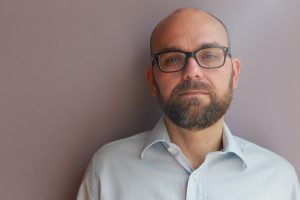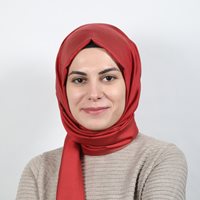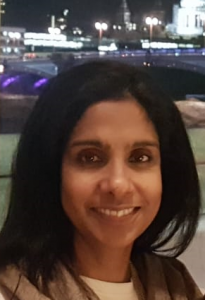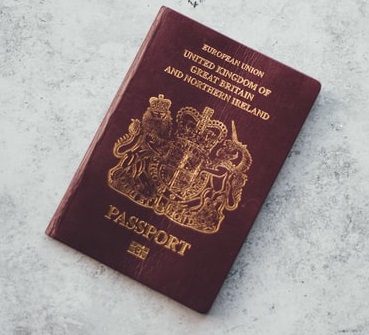- Have you ever been pulled out at passport control when visiting another country and forced by the local police to wait for three hours without any explanation, while your colleagues passed without any incident?
- Have you had to pay additional fees compared to your colleagues to be able to attend an event?
- Have you registered with the police on entering the country where you study, and then updated it every time you move to a different location within the country, when you get married, or change surname?
These are three out of 10 questions Nihan Albayrak-Aydemir put to readers in her post titled The Hidden Costs of Being a Scholar from the Global South to determine whether they had passport privilege. There has been a lot of interest in Nihan’s piece, and the introduction of vaccine passports has only made it more of a burning issue. The LSE Higher Education Blog has convened a panel to discuss the impact of the current regime of passport and visa protocols on student migrants, how vaccine passports will exacerbate passport privilege, the emotional tax associated with passport penalty, and decolonising university practice. The panel discussion takes place on 8 July 2021, and a recording of the event will be made available here soon.
The panellists are:
 Cláudio Pinheiro is Professor of Asian and African Studies and counsellor for South-South Cooperation at Rio de Janeiro Federal University; chairman of Sephis Programme, Nederlands; and Visiting Professor Chair for Critical Studies in Higher Education Transformation at Nelson Mandela University, South Africa. His research agenda includes knowledge production and circulation, and structures of power, slavery, and forms of dependency, both observing the impact and durable effects of colonialism in the institutionalisation of power in Western and non-Western societies. Recent publications and co-publications include Anthropology with Southern Attitude, A Historical Sociology of Power, and Pandemics, Social Sciences and Inequality of Time.
Cláudio Pinheiro is Professor of Asian and African Studies and counsellor for South-South Cooperation at Rio de Janeiro Federal University; chairman of Sephis Programme, Nederlands; and Visiting Professor Chair for Critical Studies in Higher Education Transformation at Nelson Mandela University, South Africa. His research agenda includes knowledge production and circulation, and structures of power, slavery, and forms of dependency, both observing the impact and durable effects of colonialism in the institutionalisation of power in Western and non-Western societies. Recent publications and co-publications include Anthropology with Southern Attitude, A Historical Sociology of Power, and Pandemics, Social Sciences and Inequality of Time.
 Johanna L. Waters is Professor of Human Geography and co-director of the Migration Research Unit at University College London. She has worked on aspects of transnational families, education, and migration, with a particular interest in East Asia. She is presently co-editing a book on Migration and the Family and is looking forward to the publication of Student Migrants and Contemporary Educational Mobilities this coming September.
Johanna L. Waters is Professor of Human Geography and co-director of the Migration Research Unit at University College London. She has worked on aspects of transnational families, education, and migration, with a particular interest in East Asia. She is presently co-editing a book on Migration and the Family and is looking forward to the publication of Student Migrants and Contemporary Educational Mobilities this coming September.
 Ross Porter is the associate director for visa compliance and financial aid at the London Business School, and also an independent consultant specialising in immigration compliance. He has been working in immigration compliance for over 10 years, at a broad range of institutions, since the original points-based system was introduced in 2009. Ross is responsible for ensuring that London Business School fulfils its duties as a Home Office registered sponsor, interpreting the legislation and ensuring that the necessary controls are in place so that the school can offer visas to international students and staff.
Ross Porter is the associate director for visa compliance and financial aid at the London Business School, and also an independent consultant specialising in immigration compliance. He has been working in immigration compliance for over 10 years, at a broad range of institutions, since the original points-based system was introduced in 2009. Ross is responsible for ensuring that London Business School fulfils its duties as a Home Office registered sponsor, interpreting the legislation and ensuring that the necessary controls are in place so that the school can offer visas to international students and staff.
 Ulrick Sidney is a Global Surgery Fellow at Operation Smile. He is the founding president of the Association of Future African Neurosurgeons and 2019-20 Global Neurosurgery research associate at Harvard Medical School. He serves on the Secretariat team of the World Federation of Neurosurgical Societies’ Global Neurosurgery Committee.
Ulrick Sidney is a Global Surgery Fellow at Operation Smile. He is the founding president of the Association of Future African Neurosurgeons and 2019-20 Global Neurosurgery research associate at Harvard Medical School. He serves on the Secretariat team of the World Federation of Neurosurgical Societies’ Global Neurosurgery Committee.
 Nihan Albayrak-Aydemir (co-chair) recently received her PhD in Social Psychology at the LSE. Her work looks at social identity dynamics and intergroup relations underlying prosocial attitudes and behaviours within the contexts of global emergencies, migration, or higher education. She is currently developing a new research agenda on the ways in which unequal power structures and poor research and teaching practices influence the production of scientific knowledge and practices as well as the public’s response to scientific and technological developments. Recent publications or co-publications include Measuring global bystander intervention and exploring its antecedents for helping refugees, A decade of theory as reflected in Psychological Science(2009-22019), and The hidden costs of being a scholar from the Global South.
Nihan Albayrak-Aydemir (co-chair) recently received her PhD in Social Psychology at the LSE. Her work looks at social identity dynamics and intergroup relations underlying prosocial attitudes and behaviours within the contexts of global emergencies, migration, or higher education. She is currently developing a new research agenda on the ways in which unequal power structures and poor research and teaching practices influence the production of scientific knowledge and practices as well as the public’s response to scientific and technological developments. Recent publications or co-publications include Measuring global bystander intervention and exploring its antecedents for helping refugees, A decade of theory as reflected in Psychological Science(2009-22019), and The hidden costs of being a scholar from the Global South.
 Lee-Ann Sequeira (co-chair) is an academic developer, Eden Centre for Education Enhancement and the editor of the LSE Higher Education Blog. In her work, she takes a critical, interdisciplinary approach and is committed to fostering all forms of diversity (viewpoint, cultural etc.). Her recent publications are The problem with silent students – it’s us, not them and Academic developers should be critical in the culture wars.
Lee-Ann Sequeira (co-chair) is an academic developer, Eden Centre for Education Enhancement and the editor of the LSE Higher Education Blog. In her work, she takes a critical, interdisciplinary approach and is committed to fostering all forms of diversity (viewpoint, cultural etc.). Her recent publications are The problem with silent students – it’s us, not them and Academic developers should be critical in the culture wars.
____________________________________________________________________________________________________
This post is opinion-based and does not reflect the views of the London School of Economics and Political Science or any of its constituent departments and divisions.
____________________________________________________________________________________________________
Image: Annie Spratt on Unsplash




